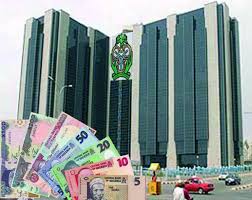
Central Bank of Nigeria (CBN) set aside N385 billion ($1.2 billion) at the official exchange rate of N415/$1) for intervention projects to lift the fragile economy. A Professor of Economics at Allegheny College, Stephen Onyeiwu, dusclosed in an article titled: “The impact of the CBN recently-increased interest rate on low-income Nigerians.” The funds are being used to provide concessionary credit to sectors that boost the productive capacities of the economy. Onyeiwu explained that the aim was to ease supply constraints and ameliorate inflationary pressures in the country’s economy. However, he noted that Nigeria needs more of the approach at a critical period of economic trajectories to navigate out of the doldrum retarding economic growth and development.
The don added that what the country needs was Keynesianism – an economic policy regime that would mobilise funds for massive job-creating investments in infrastructure, agriculture, labour-intensive manufacturing and agro-processing to promote self sufficiency in production of goods and agro-allied products.
The professor of economics stressed that CBN recently announced an increase in the interest rate from 11.5 per cent to 13 per cent, a 1.5 percentage point hike that took effect immediately. According to him, “whenever the Central Bank changes the monetary policy rate otherwise known as the discount or interest rate, deposit money banks and other financial institutions follow suit. Banks will therefore be raising their lending rates, which will increase the cost of borrowing and reduce the demand for money. “The accepted logic is that this will lead to a reduction in consumption and investment, thereby cooling off the overheated economy.
“According to the central bank, the interest rate was raised to reduce inflationary pressure, narrow the negative real interest rate margin, restore investor confidence and boost remittances. Nigeria’s inflation rate was about 16.8 per cent as of April 2022. The rate was at an all-time high of about 18 per cent a year ago, but dropped to 15 per cent in November 2021.
It has been on an upward trend since then, which explains why the central bank took a pre-emptive measure to tame it. He explained: “But in my view, we shouldn’t assume that monetary policy will work in Nigeria the way it works in other countries. In addition, Nigeria’s large informal sector has very weak linkages with the formal financial sector. “About 80 per cent of Nigerians are employed in the informal sector. Unlike households in developed countries, many Nigerians will not change their economic decisionmaking because of the interest rate increase. “There are also concerns about the timing of the increase. Nigeria is facing high levels of unemployment and poverty. Higher rates will have knock-on effects in the broader economy. For example, the manufacturers association of Nigeria’s big worry is that the rate hike would increase input costs and weaken the demand for manufactured goods.
“The rate increase will not have significant effects on most low-income Nigerians for a few reasons. First, domestic credit to the private sector in Nigeria is very low. It was just 12 per cent of gross domestic product (GPD) in 2020, compared with an average of 40 per cent for sub-Saharan Africa. Nigeria is one of the 20 or so countries in the world with a domestic credit to private sector ratio of below 15 per cent of GDP. Continuing. “Credit allocation to individuals and households is also low. This is because banks usually impose onerous conditions that make it nearly impossible for many Nigerians to obtain loans.
As of May 2021, for instance, consumer credit accounted for only 10.2 per cent of total credit to the private sector. “Firstly, its effectiveness in curtailing inflation in Nigeria is blunted because price increases are caused mainly by supply constraints. These include insecurity in foodproducing areas of the country, poor infrastructure, the war in Ukraine which has pushed up the price of commodities such as wheat, and falling imports due to currency depreciation. Unable to obtain credit from financial institutions, many Nigerians use loan sharks. “The inability of many Nigerians to access loans from banks means they will not have to worry about paying higher rates on mortgages, credit cards, autos and student loans. Additionally, the rate hike will not have an impact on the prices of goods and services typically consumed by low-income Nigerians. Hikes in the prices of these basic food stuffs are driven by factors such as insecurity concerns as well as poor infrastructure that makes getting food to markets expensive.”

